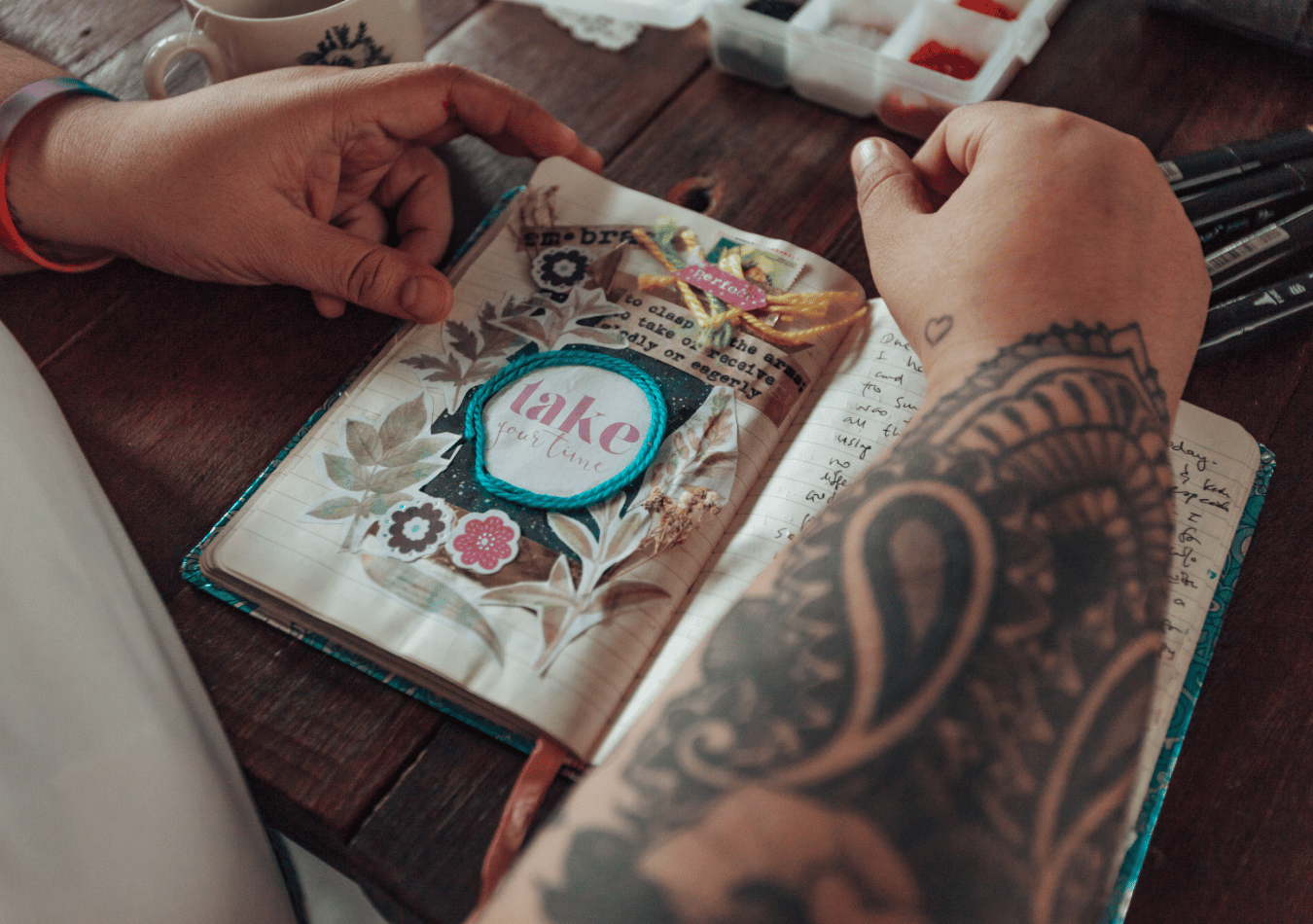Good & Bad OCD Coping Skills → What Actually Helps (and What Doesn’t)
Takeaway: Not all coping strategies for OCD are created equal—some can actually make symptoms worse over time. In this post, you’ll learn the difference between helpful and harmful coping skills so you can start managing OCD in a way that truly supports your healing.
OCD had a client feeling stuck in her own life—now she has her obsessions under control and is building an amazing future.
At Cope & Calm Counseling, I’ve seen firsthand how the wrong coping strategies can keep clients feeling trappe , even when they’re trying their hardest to feel better. As Licensed Professional Counselors specializing in anxiety and Obsessive Compulsive Disorder (OCD), we help our clients unravel unhelpful rituals and mindsets and replace them with skills that actually support healing.
The truth is, not all coping strategies are effective in reducing OCD symptoms. Some feel comforting in the moment and offer temporary reassurance but strengthen the OCD cycle over time—while others offer lasting relief and freedom.
In this post, we’ll break down the difference between helpful and harmful OCD coping skills, so you can move from surviving to thriving with strategies grounded in evidence-based care. Whether you’re managing unwanted thoughts or compulsive behaviors, understanding what actually helps is the first step toward real change.
First off: What is OCD and what makes an OCD coping strategy “good” or “bad”?
Obsessive Compulsive Disorder (OCD) is the condition in which someone regulates distress from intrusive thoughts or obsessions with a specific ritualized behavior or compulsion. It may not make logical sense and the compulsion my not be related to the obsession. For example, someone struggling with harm obsessions may be worried that they will stab anyone in the kitchen with them and need to rub the sink until it feels like they won't harm someone before picking up a knife.
The strength in the compulsions is not from the logical tie to the obsession, but rather the tie to the perceived sense of control that the compulsion provides. The person in this example has rubbed the sink so many times with the explicit intention of making it impossible to stab someone, that this pattern has become logged as fact in this person's mind. "If I rub a sink, then I won't hurt anyone. It has worked so many times before and will again. ".
A good coping skill is one that helps reduce the power OCD has over your life in the long run. These skills will help you retrain your brain and break the ties between obsessive thoughts and selected compulsions. Strategies like exposure, mindfulness, and values-based action teach your brain it can tolerate discomfort without relying on compulsions
On the flip side, a bad coping skill might feel helpful in the moment but actually reinforces the OCD cycle. These include compulsions, avoidance, or excessive reassurance-seeking—behaviors that offer short-term relief while keeping you stuck in the loop.
This isn’t about judgment or doing things “wrong.” It’s about understanding how OCD works so you can shift from short-term comfort to long-term freedom. The goal is to support you in building skills that weaken OCD’s grip and empower you to live a fuller, more flexible life.
Good OCD coping skills (with therapist-backed examples)
1. Exposure and Response Prevention (ERP)
What it is:
ERP is a form of cognitive behavioral therapy that involves gradually facing feared situations or thoughts (exposure) without engaging in the compulsion that usually follows (response prevention). The fear center of the brain learns through experiences. ERP provides and opportunity to evoke the distress caused by the obsession and pair it with a different outcome than it expects. ERP is often considered the gold standard treatment option for OCD.Why it works:
By resisting the urge to perform compulsions, your brain learns that anxiety naturally decreases over time—even without the rituals. This reduces the intensity and frequency of OCD symptoms.Example of how to practice it:
If someone has contamination fears, they might touch a doorknob and resist the urge to wash their hands afterward. A therapist would guide the exposure to ensure it’s challenging but manageable.
2. Practicing Cognitive Defusion
What it is:
Cognitive defusion is a way to practice mindfulness in the face of distressing thoughts. The goal is to get to a place where you can notice an intrusive thought, and not take the bait. Simply observe it move forward. Essentially this coping skill is a practice of attention. The goal is to acknowledge the thought’s presence while continuing with your day.Why it works:
OCD thrives on urgency and meaning. When you practice noticing thoughts without reacting, you teach your brain that the presence of an intrusive thought doesn’t require action. Overtime, the urgency will dwindle and it will be easier to shift your attention away from obsessional thoughts and stay in the present moment.Example of how to practice it:
When the thought “What if I accidentally hurt someone?” pops up, simply name it: “There’s that scary thought again.” Then gently redirect your focus back to what you were doing.
3. Values-Based Behavior
What it is:
Acting in alignment with your values—what truly matters to you—even when OCD urges try to dictate your actions. A therapist trained in Acceptance and Commitment Therapy (ACT), can help with this.Why it works:
OCD wants your attention. Values-based behavior pulls your focus back to meaningful life goals instead of feeding the cycle of avoidance and compulsions.Example of how to practice it:
If family connection is important to you but OCD tells you not to hug your child because of contamination fears, choosing to hug them anyway honors your value—even while anxiety may still be present.
4. Delay and Distract with Intention
What it is:
Instead of engaging in a compulsion immediately following an intrusive thought, you delay it intentionally—often for a set period—and use healthy distractions in the meantime.Why it works:
The urge to perform compulsions feels urgent, but delaying teaches your brain that it can survive that discomfort. Over time, the urge loses its power. This is a way of partializing or breaking down the task of response prevention.Example of how to practice it:
When you feel compelled to check something, try setting a timer for 5-10 minutes and engaging in a different activity (like texting a friend or going for a walk). Choosing a physical activity can help to regulate your nervous system while not engaging in the compulsion. Once your brain registers that the feared outcome is not happening or that it is not as bad as you've worried it would be, the urgency will fade.
5. Limiting Reassurance-Seeking
What it is:
Reassurance-seeking is asking others to confirm that everything is “okay” (e.g., “Are you sure I didn’t offend them?”). Limiting this behavior supports autonomy and reduces dependence.Why it works:
While reassurance might soothe distressing feelings in the short-term, it reinforces the belief that uncertainty is dangerous. It also reinforces the belief that the person with OCD cannot trust their own perceptions of reality. Reducing it strengthens your tolerance for not knowing—and for trusting yourself.Example of how to practice it:
If you typically ask your partner several times a day if you upset them, encourage your partner to respond with a supportive observation but not reassurance. This might sounds like "I can see that you are really worried that I am mad with you" or "I know that nagging worry is really bothersome to you". With time, the need for reassurance will lessen naturally.
These coping skills aren’t about “getting it perfect”—they’re about creating a sustainable path forward. With consistent practice and support, they help shift the brain’s relationship to fear, uncertainty, and compulsions. And that’s where the real healing happens.
“Bad” OCD coping mechanisms that keep you stuck
OCD can be incredibly convincing, and many coping strategies feel like they offer relief—but only for a moment. The problem? These “quick fixes” often strengthen the OCD cycle and keep you stuck. Here are some common coping habits that offer short-term comfort but interfere with long-term recovery—and what to try instead.
1. Reassurance-Seeking
Why it feels helpful:
Asking a loved one, “Are you sure I didn’t mess that up?” or “Do you think I’m a bad person?” can bring immediate comfort and help quiet intrusive thoughts for a moment.Why it’s unhelpful in the long run:
Reassurance acts just like a compulsion—it temporarily reduces anxiety while reinforcing the idea that you need to feel 100% certain. Over time, your brain keeps demanding more reassurance to feel safe.What to do instead:
Acknowledge the uncertainty (“I can’t know for sure, and that’s okay”) and resist the urge to ask. You can even script your discomfort: “My brain wants me to check, but I’m choosing not to.”
2. Avoidance of Triggers
Why it feels helpful:
Steering clear of anxiety-provoking situations—like skipping places, people, or objects associated with intrusive thoughts—can feel like a safe, preventative measure.Why it’s unhelpful in the long run:
Avoidance teaches your brain that the feared thing is dangerous. This reinforces OCD’s control and shrinks your world, sometimes dramatically.What to do instead:
Gradually expose yourself to the feared situation with the support of a therapist or self-directed plan. Each successful exposure teaches your brain you’re capable of handling discomfort.
3. Mental Compulsions (e.g., rumination, reviewing, neutralizing thoughts)
Why it feels helpful:
Replaying a conversation, analyzing a thought, or mentally checking your “intentions” can feel like a way to gain clarity or prove you're a good person.Why it’s unhelpful in the long run:
Mental compulsions are just as sticky as physical ones. They keep the obsession alive and prevent your brain from learning that thoughts don’t need solving or fixing.What to do instead:
Notice when you're engaging in mental review and gently label it (“That’s a mental compulsion”). Then, redirect your attention to a value-based action—something that moves your life forward, not deeper into the spiral.
4. Checking Behaviors
Why it feels helpful:
Whether it’s checking locks, appliances, or emails over and over, these behaviors feel like necessary safety measures to prevent something bad from happening.Why it’s unhelpful in the long run:
Each time you check, you send your brain the message that you can’t trust your memory or judgment. This fuels the doubt and anxiety, making future urges stronger.What to do instead:
Set a firm rule: check once and then move on. You can even say aloud, “I’ve done what I needed to do, and I’m not going back.” Accept the discomfort that follows and observe any intrusive thoughts that come—they will pass.
5. Seeking Online “Proof” or Researching Symptoms
Why it feels helpful:
Googling symptoms, moral dilemmas, or news stories can feel like a smart way to ease doubt or get confirmation that you’re okay.Why it’s unhelpful in the long run:
Online searching is a form of reassurance and often leads to more confusion, not less. It feeds the compulsive cycle and undermines your ability to tolerate uncertainty.What to do instead:
Create a “no-Googling” boundary for OCD-related topics. If the urge hits, delay it and engage in something grounding—like a brief walk, calling a friend (not to seek reassurance), or shifting your focus to a task you value.
These strategies aren’t “bad” in and of themselves. Seeking reassurance and leaning on your support group or checking can be adaptive strategies when they are not directly tied to soothing an obsessive thought. When ritualized into a compulsion however, they’re just wired to give you relief now at the cost of freedom later. The more you understand you obsessive compulsive disorder patterns, the more empowered you’ll feel to make intentional choices that move you toward lasting healing.
How to shift from unhelpful to helpful coping
Shifting away from “bad” OCD coping skills isn’t easy—especially when they’ve been offering quick relief during moments of high anxiety. It makes total sense that you’ve leaned on them; your brain is just trying to protect you. The good news? It’s absolutely possible to move toward more helpful, long-term strategies that reduce OCD’s grip and give you more freedom in your daily life.
Here’s how to start making that shift:
Get curious, not critical. Notice when you’re using a certain coping strategy and ask yourself, “Is this helping me in the long run?”
Start small. You don’t have to overhaul everything overnight. Choose one unhelpful behavior to reduce and replace it with something more supportive.
Sit with the discomfort. Practice tolerating the urge without responding to it—remind yourself that the anxiety will pass.
Celebrate progress. Every time you resist a compulsion or delay a reassurance-seeking question, you’re rewiring your brain. That’s a big deal.
With practice, the helpful skills start to feel more natural—and the old patterns lose their power. It’s not about being perfect; it’s about building flexibility, strength, and self-trust one choice at a time.
When to get support for OCD
While these coping strategies are powerful tools, they’re not meant to replace professional treatment. Working with a therapist—especially one trained in evidence-based approaches like ERP (Exposure and Response Prevention)—can make all the difference when it comes to breaking free from OCD’s grip.
You might benefit from working with a therapist if you:
Feel like your coping skills aren’t working anymore or you're constantly exhausted by OCD.
Spend more than an hour each day on obsessions or compulsions.
Avoid people, places, or activities to prevent triggering thoughts.
Feel overwhelmed by guilt, shame, or fear related to your thoughts.
Notice that your rituals or routines are interfering with work, school, or relationships.
Find yourself stuck in cycles of reassurance-seeking or mental reviewing you can’t break alone.
You don’t have to do this on your own—and you’re not supposed to. With the right support from licensed therapists, you can move from managing OCD to actually healing.
Final thoughts
Learning how to cope with OCD in a healthier way can be truly life-changing. The right coping skills don’t just reduce anxiety in the moment—they actually retrain your brain to respond differently to fear and uncertainty. And when paired with therapy, those skills become even more powerful.
One of my clients came in feeling completely stuck. Her obsessional concerns about her appearance lead to compulsions that left her exhausted. Eventually the dread of "having to" do her compulsive beauty routines made the idea of going to work or leaving the house seem entirely unenjoyable. Her OCD symptoms have a strong negative impact on her mental health. She was stuck in obsessive loops, depressed, and isolated.Through Exposure and Response Prevention, Acceptance and Commitment Therapy, and inference based CBT, she slowly began facing her fears head-on. Today, she’s not only managing her OCD—she’s thriving in grad school, traveling, and reconnecting with joy.
At Cope & Calm Counseling, our mental health professionals specialize in treating OCD and related disorders with warmth, compassion, and research-backed care. Whether you're newly diagnosed or have been struggling for years, we can help you build the tools and confidence you need to move forward. Ready to take the first step? We’re here when you’re ready.



